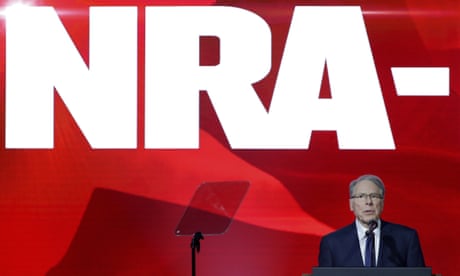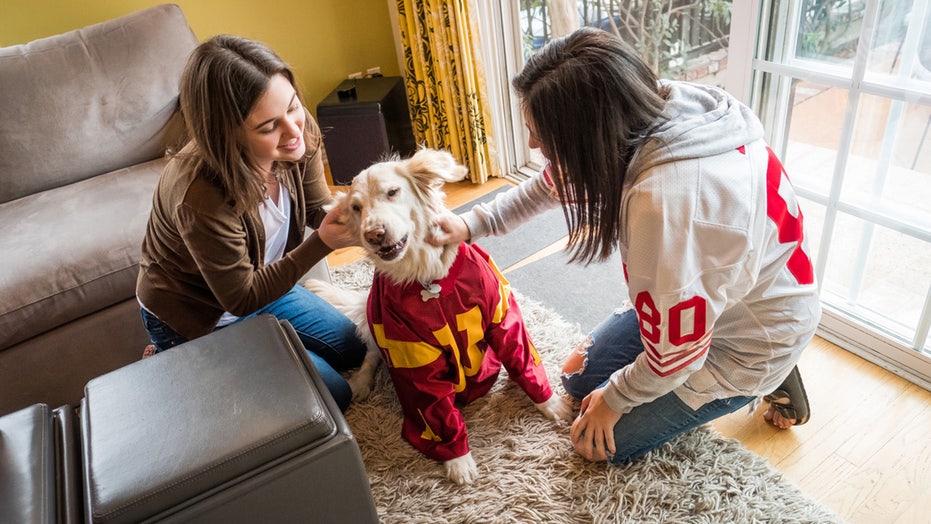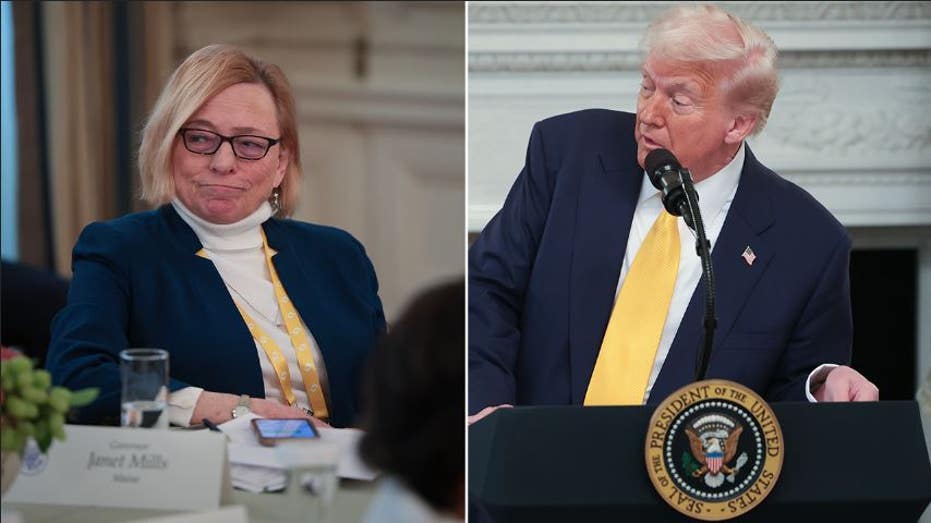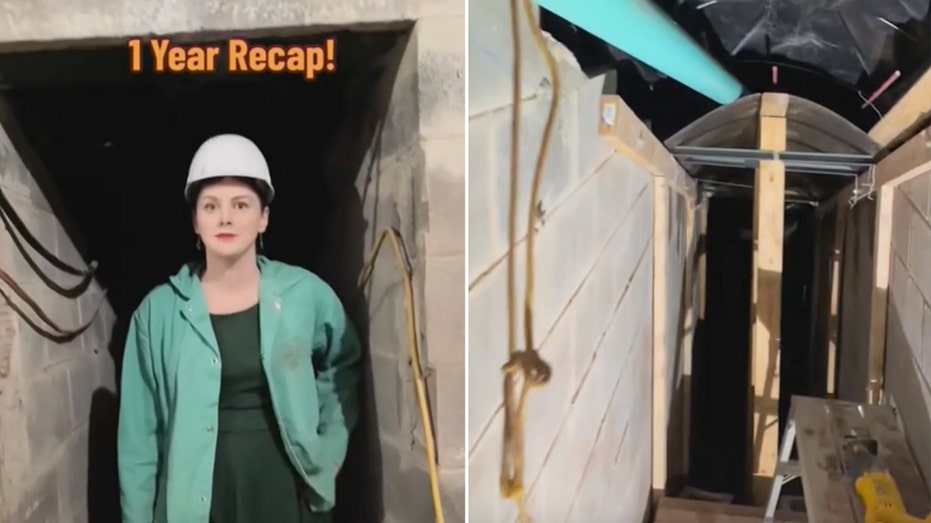- by foxnews
- 15 Mar 2025
Why appeals to altruism won’t budge the US gun lobby
Why appeals to altruism won’t budge the US gun lobby
- by theguardian
- 30 May 2022
- in news

Even the murder of 19 elementary school children in Texas could not deter America's gun industry from enjoying its annual celebration of the weapons that slaughtered them.
Ahead of its three-day convention in Houston this weekend, the National Rifle Association offered its "deepest sympathies" to the families of the eight- to 11-year-old students, and two of their teachers, killed in a "horrific and evil crime" in the small town of Uvalde on Tuesday.
In the next sentence, the NRA absolved the gunmakers and their $20bn a year industry that claims the lives of more than 100 Americans each day, by dismissing the massacre as "the act of a lone, deranged criminal".
With that out of the way, one of the most powerful political lobbies in the US moved swiftly on to heralding the conference as a "a freedom-filled weekend for the entire family as we celebrate Freedom, Firearms, and the Second Amendment!". Central to the fun was "over 14 acres of the latest guns and gear" on display.
The NRA's defiance and swagger were not misplaced.
Some of its supporters were shamed into pulling out of the conference, including Daniel Defense, the manufacturer of the semi-automatic rifle used by 18-year-old Salvador Ramos to kill the children.
But they were not missed as Donald Trump spoke at the opening event on Friday evening, less than 300 miles from Uvalde. The former president attempted to bring a degree of solemnity to the proceedings by reading the names of the 21 dead as a recording of a bell sounded.
Then Trump launched into a defiant defense of guns by accusing the Democrats of "virtue-cycling" over the massacre while claiming that gun reform would have done nothing to stop it. Instead he ticked off a list of NRA talking points as solutions, from better mental health care to arming teachers.
The NRA rank and file at the conference was not discouraged from the argument that more guns were the answer to gun massacres by the infuriating and heartrending revelation that 20 well-armed police officers waited outside the Uvalde classroom for nearly an hour before acting against Ramos, during which time at least some of the children were still alive.
After a series of conflicting versions of events over several days, the director of the Texas department of public safety, Steven McCraw, admitted that the onsite police commander held back his officers while a hunt was under way for a key to unlock the classroom door in the false belief that there was not a serious threat to the students, even after a barrage of shots was heard when Ramos first entered the room and then sporadic firing thereafter.
Even with teachers and children repeatedly calling the emergency services - including a girl who pleaded: "Please send the police now" - and parents begging the police to move in, the commander held off.
"Of course it was not the right decision. It was the wrong decision," said McCraw.
The murder of elementary school children in Texas came just days after a white supremacist allegedly shot dead 10 people in a Buffalo supermarket. But Uvalde will hold a special place in the collective American memory of murdered schoolchildren alongside the slaughter of 20 six and seven year-olds, and six adults, at Sandy Hook elementary school in Connecticut in 2012. And the murder of 14 high school students and three staff in Parkland, Florida, six years later.
Ryan Busse, author of Gunfight, a book about his time as a firearms industry executive who became disillusioned with the industry's contempt for life, wants to believe that each mass killing shifts America closer to addressing its gun crisis, but he is cautious.
"I was in the firearms industry during Sandy Hook. At the beginning, everybody in the industry was 100% convinced that groundbreaking legislation was coming after that. Two weeks later they were less sure. And four weeks after, they were thinking it wouldn't happen. So I'm just hoping we're not headed down that path again," he said.
"I do think that there are a group of moderate Republicans in the Senate who believe that something should be done now, probably for political reasons. But it won't happen out of any altruism. The only way that will happen is if the industry senses that there is enough political pressure to cost them votes. In other words, it will be purely out of self-preservation if it does happen."
There were flickers of that late last week as a bipartisan group of senators started informal talks on gun-safety legislation. But it is likely to be a long path even to restoring a federal ban on assault weapons, modelled on the guns American soldiers take to war, that the Republicans let expire in 2004.
For a start, any new restrictions are going to have to get past the gunmakers and the NRA. Between them they have created an industry whose power has left it largely unregulated and unaccountable, to a degree others can only wish for.
Americans bought nearly 20m guns in 2021, the firearms industry's second-best year on record. Gun deaths were also up, with 45,000 Americans killed by firearms last year, according to the Gun Violence Archive. More than 1,500 were children or teenagers. Among the dead were the victims of 692 mass shootings, defined as resulting in four or more people killed or wounded, in the US in 2021.
The worst of the massacres drive up gun sales. Daniel Defense reported a surge in demand for its semi-automatics after the Sandy Hook murders.
Busse said that the gunmakers were well aware of the cost of their business in lives but there was money to be made.
"I think they realise that bad things had very positive consequences for gun sales, and so they were OK with looking away from the bad things," he said. "When the American capitalist publicly traded system gets involved in this, and you have those sorts of immense quarterly pressures, the forces of big money encourage really irresponsible actions."
Opinion polls consistently show that a slim majority of Americans want tighter gun laws while about one-third say they should stay as they are. Only about one in ten Americans want to see them relaxed further. But support for more restrictions has fallen over the past three decades from nearly 80% backing more gun control.
That is largely the result of the politicisation of the issue as the NRA turned unswerving support for access to guns into a cultural and political litmus tests in parts of the country alongside the anti-abortion campaign. Meanwhile, the weapons makers' profits surged.
Many members of Congress are afraid of the NRA in the same way they avoid the ire of the oil lobby and American Israel Public Affairs Committee because of their ability to mobilise hostile money and votes.
"The NRA has learned a very effective lesson," said Josh Sugarmann, director of the gun control advocacy group the Violence Policy Center. "They only need to activate a relatively small percentage of supporters to hold the federal policymakers in check.
"Their advocates are just incessant. They embrace to the highest possible degree any opportunity to make sure that their policymakers know their position. They go to the district meetings, they call, they write, and they don't just write once, they don't just call once, they do it consistently. And they don't do it just in the context of some horrific event. They do it all the time."
Gun rights advocates are also frequently single-issue voters in Republican primary elections. Accusations of anything less than unswerving commitment to the supreme court's interpretation of the second amendment of largely unfettered gun ownership as a constitutional right can be political suicide. Many Republican and some Democratic candidates pledge their support of the NRA and sport its endorsement large in their advertising.
With that power, the gun manufacturers have captured policymaking. Its goal is not so much new laws, although it has some notable successes, as silence and inaction on gun control. When legislation does pass, it is more likely to be designed to shield the gun industry from accountability than to regulate it.
At the behest of the NRA, Congress has tied the hands of the Bureau of Alcohol, Tobacco, Firearms and Explosives (ATF) as the federal agency responsible for overseeing gun regulation on the grounds that intervention threatens constitutional rights. The ATF is limited in its ability to monitor gun shops, which is one reason Mexican drug cartels arm themselves with weapons bought in Texas. Congress also barred the ATF or any other federal agency from keeping centralised records of gun ownership or sales.
The firearms industry has also worked to prevent Americans from understanding the true cost of largely unregulated firearms ownership. The manufacturers were so alarmed by a groundbreaking 1993 study showing that the dangers of having a gun in the house far outweighed whatever protection it might offer that the NRA worked on Congress to put a halt to such research.
Three years later, Republicans pushed through a law cutting virtually all federal funding for studies about gun deaths. As pressure grew from the victims of gun crimes to hold the weapons manufacturers to account, the gunmakers and their lobbyists engineered a 2005 law limiting liability claims against gun manufacturers who were facing lawsuits from cities seeking compensation for healthcare and law enforcement costs resulting from gun violence. Mike Fifer, then CEO of Sturm Ruger, one of the country's leading handgun manufacturers, told the NRA that the law had probably saved the gun industry.
- by foxnews
- descember 09, 2016
Neighbors react as viral 'Tunnel Girl' granted permit to continue digging massive bunker under home
"Tunnel Girl" in Herndon, Virginia, "finally" got her tunnel project approved after pausing the project due to a potential violation. Locals and social media users react.
read more


